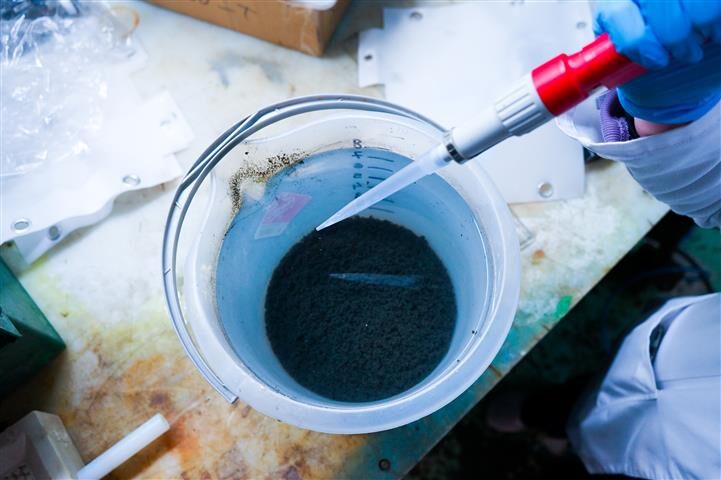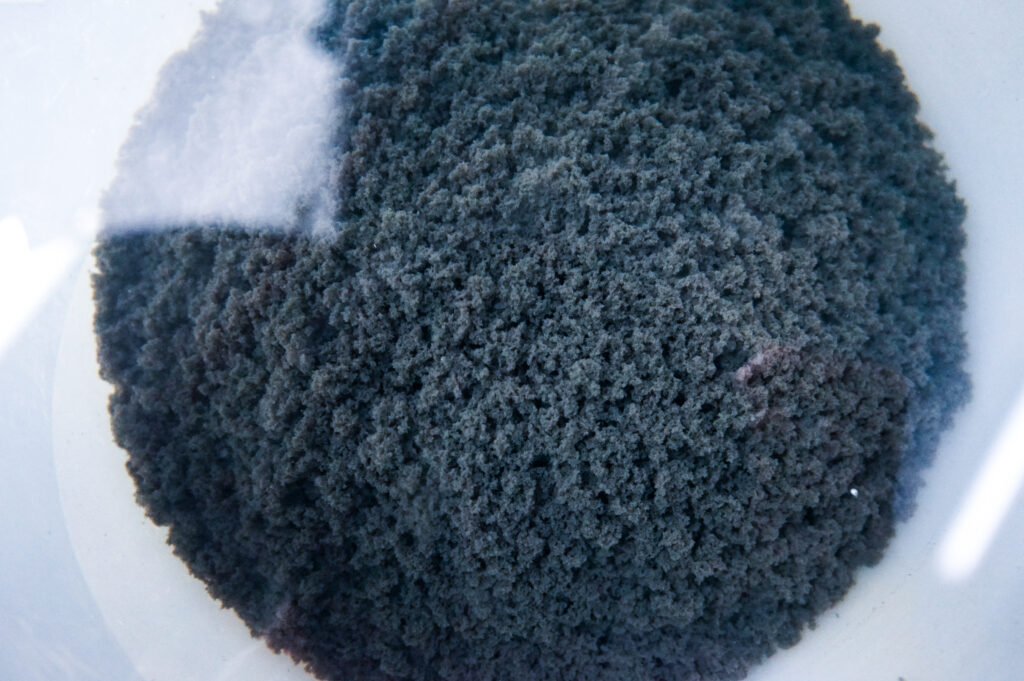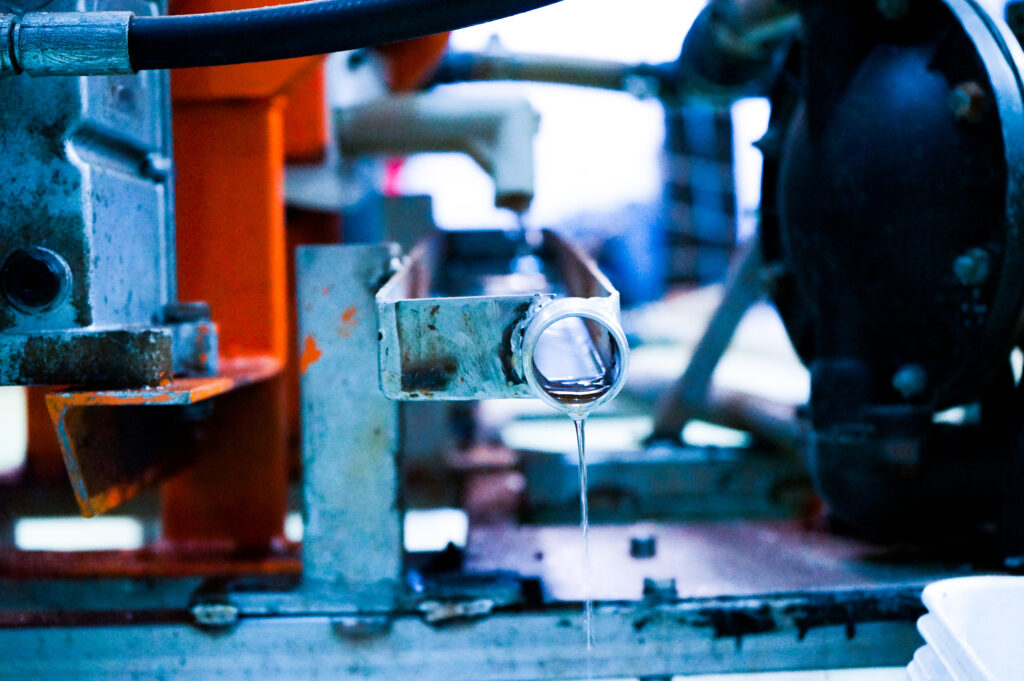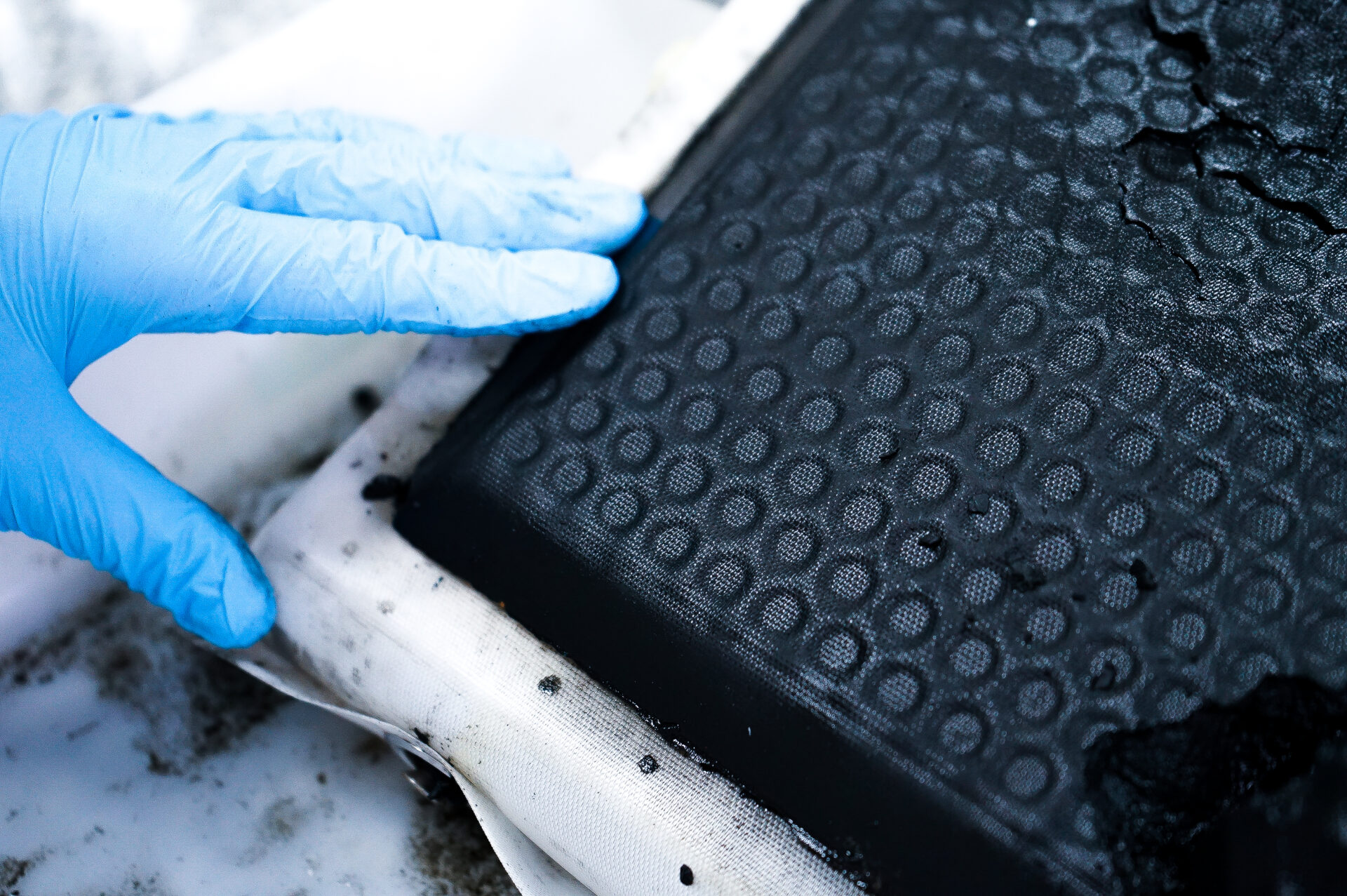The picture shows a pilot test conducted with a filter press, designed to address a particular challenge in wastewater treatment: the high concentration of activated carbon in a customer's effluent. This type of fine solid has characteristics that make it difficult to separate, as it is not easily compacted and behaves similarly to sand in suspension.
The technical solution proposed consisted of incorporating flocculants into the process. These chemicals agglomerate the activated carbon particles, thus facilitating their retention during filtration. After several trials with different formulations and dosages, a sludge formation with suitable properties for handling was achieved.
As can be seen in the photograph, the final result is a compact and homogeneous sludge, clear evidence of the good performance of the system under the specific operating conditions. Uniform texture and correct distribution of the solid indicate efficient retention and successful treatment.
This type of testing is essential to adapt the filtration technology to the unique characteristics of each waste, ensuring an efficient and sustainable operation. Customization of solutions is key in water engineering, and this case is a clear example of how a technical and experimental approach can effectively solve a complex problem.



If your company is facing a similar challenge and would like to perform a test like this to find the best solution for your wastewater treatment, do not hesitate to contact us. You can write to us at agb@aguambiente.com and our technical team will be happy to help you.

